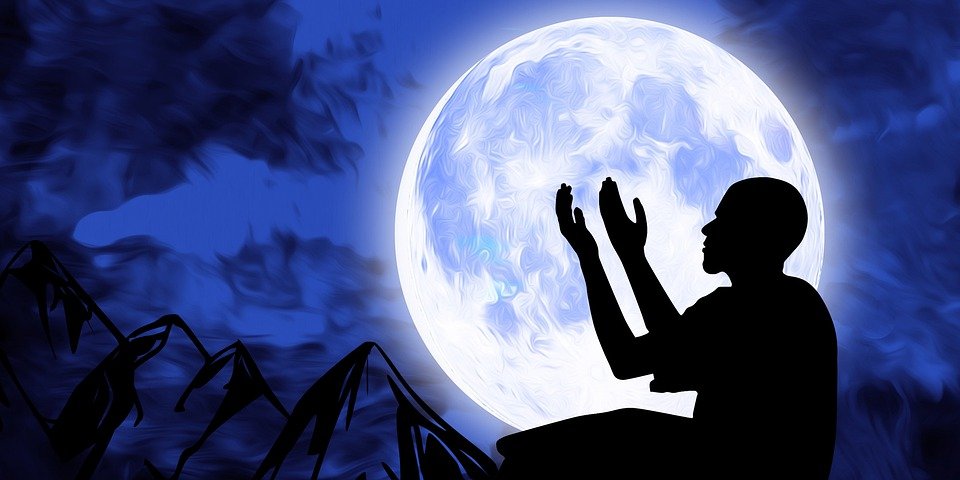Ramadan is the holiest month in the Islamic calendar, and it is observed by Muslims worldwide through fasting, prayer, and acts of charity. One of the most significant aspects of Ramadan is the performance of night prayers, also known as Taraweeh. Night prayers are an essential component of Ramadan, and they hold great spiritual significance for Muslims.
The night prayers in Ramadan are performed after the Isha prayer and consist of a series of units known as Rak’ahs. The exact number of Rak’ahs may vary among different Muslim communities, but the most common number is twenty units. These prayers are typically performed in congregation, with the Imam leading the prayers and reciting verses from the Quran.
The significance of night prayers in Ramadan can be understood in several ways. Firstly, these prayers are an expression of devotion and dedication to God. Muslims believe that the act of worship is one of the most significant ways to demonstrate one’s love for God, and the performance of night prayers in Ramadan is seen as an opportunity to deepen one’s spiritual connection with the divine.
Moreover, night prayers are believed to be a means of seeking forgiveness and atonement for sins. Muslims believe that Ramadan is a month of mercy and forgiveness, and the performance of night prayers is seen as a way to seek God’s forgiveness and to purify one’s soul. This act of repentance and seeking forgiveness is also seen as a way to increase one’s spirituality and to develop a deeper sense of humility and gratitude towards God.
Zakat al-Fitr: The obligatory Eid donation to be made by end of Ramadan
Abducted Zamfara varsity students regain freedom
Another significant aspect of night prayers in Ramadan is its role in building community and fostering social connections. The performance of Taraweeh prayers in congregation provides an opportunity for Muslims to come together and pray as a community. This communal aspect of prayer is particularly important during Ramadan, as it creates a sense of shared purpose and solidarity among Muslims. The social and communal aspect of night prayers in Ramadan can also help to foster a sense of empathy and compassion towards others, as Muslims come together to support one another in their spiritual journeys.
In addition to the spiritual and communal significance, night prayers in Ramadan also have practical benefits for Muslims. Fasting during Ramadan can be physically demanding, and the performance of night prayers can help to reduce feelings of fatigue and exhaustion. Night prayers are also believed to help improve one’s mental focus and concentration, which can be beneficial for those who may find it difficult to focus during the day due to the effects of fasting.
Furthermore, the performance of night prayers can also have positive psychological effects. Muslims believe that the act of worship can provide a sense of peace and tranquillity, and the performance of night prayers in Ramadan can help to reduce feelings of stress and anxiety. This can be particularly beneficial for those who may be dealing with personal struggles or challenges during Ramadan.
One additional point that could be made is that the performance of night prayers in Ramadan is not just a personal act of worship but also an act of social responsibility. Muslims believe that they have a responsibility to care for and serve their communities, and the performance of night prayers in congregation is seen as a way to fulfill this obligation. By coming together to pray, Muslims can create a sense of unity and solidarity, which can help to strengthen their communities and promote social harmony.
Furthermore, the performance of night prayers in Ramadan can also be seen as a way to promote interfaith understanding and dialogue. Muslims are encouraged to invite non-Muslims to join them in the performance of Taraweeh prayers, and this can provide an opportunity for people from different faiths to come together and learn more about each other’s beliefs and practices. This can help to build bridges of understanding and foster greater tolerance and respect between different communities.
Finally, it is worth noting that the significance of night prayers in Ramadan extends beyond the month of Ramadan itself. The act of worship is seen as a way to develop good habits and to establish a pattern of regular prayer and devotion that can be maintained throughout the year. Muslims believe that the performance of night prayers can help to deepen their faith and to cultivate a stronger sense of connection with God, which can have a transformative effect on their lives.
In summary, the significance of night prayers in Ramadan is multifaceted and complex, encompassing spiritual, communal, practical, psychological, and social dimensions. The performance of these prayers is an expression of devotion and a means of seeking forgiveness, building community, and promoting social responsibility and interfaith understanding. Ultimately, the performance of night prayers in Ramadan is a way to strengthen one’s faith and to deepen one’s relationship with God, which is the ultimate goal of Islamic worship.
In conclusion, the performance of night prayers in Ramadan is a deeply significant aspect of Islamic worship. These prayers are an expression of devotion, a means of seeking forgiveness and atonement, a way to build community, and a source of practical and psychological benefits for Muslims. The significance of night prayers in Ramadan is rooted in the belief that this month is a time for spiritual reflection, growth and renewal. As such, the performance of night prayers in Ramadan is an essential aspect of the Islamic faith, and it holds great meaning and importance for Muslims worldwide.
Olawale wrote from Ilorin.

 Join Daily Trust WhatsApp Community For Quick Access To News and Happenings Around You.
Join Daily Trust WhatsApp Community For Quick Access To News and Happenings Around You.


